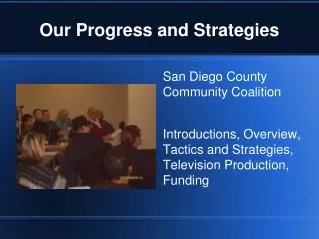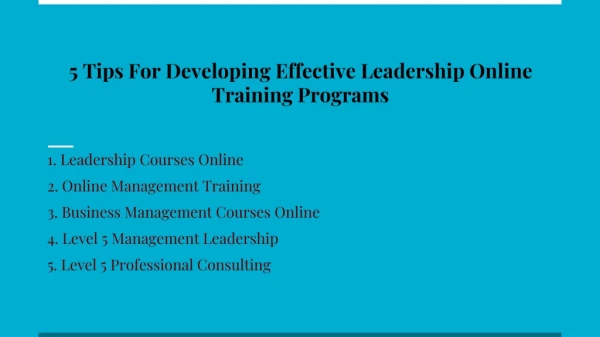Aristotle told “Acts are not ethical if they are accidental” Explain with examples.
Assignment Solutions, Case study Answer sheets Project Report and Thesis contact aravind.banakar@gmail.com www.mbacasestudyanswers.com ARAVIND – 09901366442 – 09902787224 Business Ethics CASE STUDY (20 Marks) Aristotle was the most practical and business-oriented of all philosophers who asked ethical questions. Now you may scoff at the idea that a person who's been dead for nearly 2,400 years has anything practical to say about the modern organizations in which you all work. But, let me see if I can give you an example of his doing so that will at least get your attention. Aristotle tells us that acts are not ethical if they are accidental. What he means by this, in modern terms, is that, if I am driving drunk and I hit a water hydrant, knock it off its pedestal and cause a 20-foot geyser which, in turn, puts out a fire in an adjacent house, I cannot claim to have committed a virtuous act. To illustrate the ethical centrality of right motivation, Aristotle cites a fragment of brilliant dialogue from a lost play by Euripides, Character A: I killed my mother, brief is my report. Character B: Were you both willing, and neither she nor you? It is difficult to set aside the relevance of this 2,500-year-old exchange to the current debate about the morality of physician assisted suicide, but let's focus for a minute on why Aristotle cited it. He wanted to call our attention to the significance of motivation as a factor in ethical analysis. In this mini-case, Euripides implies three different situations, each quite morally distinct from the others: In the first situation a mother is murdered, as we would say "in cold blood" by her child. In the second situation, a mother's request for mercy killing is granted by an unloving child who is only too happy to comply. In the third situation, the mother, who is perhaps dying from some terrible disease, asks her child to end her pain and, in great sadness and reluctance, he grants his mother's wish. In Aristotle's terms, only the latter situation contains the possibility of ethical virtue. Although the moral choices we face in HR, thank God, are far less dramatic than these, Aristotle tells us that motivation is a powerful indicator of the degree to which virtue is present in all of our social acts. I have gone to Aristotle because he is particularly interested in defining the principles of ethical leadership. In his Ethics he sets out a series of practical and analytical ethical tests (or examinations), and at the end of these, he concludes that the role of the leader is to create the environment in which all members of an organization have the opportunity to realize their own potential. He says that the ethical role of the leader is not to enhance his own power but to create the conditions under which the followers can achieve their potential. It was this point Jefferson was paraphrasing in the Declaration of Independence when he noted the goal of the new country being founded in 1776 was to provide conditions in which all citizens could pursue happiness. In Aristotle's terms, happiness means the realization of one's potential. Aristotle said a nation succeeds to the extent that its leaders create the opportunity and conditions under which its people can develop and grow. Of course Aristotle never heard of a large business or corporation. Nonetheless he did raise a set of questions that corporate leaders who wish to behave ethically need to ask themselves: Am I behaving in a virtuous way? How would I want to be treated if I were a member of this organization? What form of social contract would allow all our members to develop their full potential in order that they may each make their greatest contribution to the good of the whole? To what extent are there real opportunities for all employees to learn and to develop their talents and potential? To what extent do all employees participate in the decisions that affect their own work? To what extent do all employees participate in the financial gain resulting from their own ideas and efforts? If we translate Aristotle into these modern terms, he provides us with a set of ethical questions to determine the extent to which an organization provides an environment conducive to human growth and fulfillment. And, Aristotle would say, not only does an ethical leader create that environment but, he or she does do so consciously, and not coincidentally. Motivation is important. Miami hoteliers cannot claim credit for sunny days, and leaders in Silicon Valley get no ethical credit for providing jobs that are accidentally developmental. Just because working with computers may be an inherently a developmental task, one is not necessarily a marvelous employer for providing people with that opportunity. Aristotle also asks the extent to which we as leaders observe decent limits on our own power in order to allow others to lead and develop. What he's saying is that leadership is inherently such a valuable thing in terms of our growth that, if leaders take all the opportunities to lead for themselves, and don't give others the chance to lead, they are denying their followers the possibility of growth. That's why he says leadership should be shared, rotated, so that everybody has the ability to participate in it. He says that too many leaders turn their people into passive recipients of their moral feats, and there is nothing inherently ethical about that. In essence, here's the question that Aristotle asks leaders to ask themselves. To what extent do I consciously make an effort to provide learning opportunities to everyone who works for me? To what extent do I encourage full participation by all my people in the decisions affecting their own work? To what extent do I allow them to lead in order to grow? To what extent do I measure my own performance as a manager or leader both in terms of my effectiveness in realizing economic goals and, equally, in terms of using my practical wisdom to create conditions in which my people can seek to fulfill their own potential in the workplace? Very few CEOs that I work with would be able to respond to those questions with positive self-assessments. Indeed, I think many successful and admired corporate leaders consciously reject such Aristotelian measures of performance as inappropriate, impractical, and irrelevant to the task their boards have hired them to do, which is to create wealth. They say their responsibility is to their shareholders, not their employees, and if the social responsibility of employee development interferes with profit-making then tradeoffs must be made. Aristotle would answer that virtuous leaders have responsibilities to both their owners and their workers. If there's a conflict between the two, it is the leaders' duty to create conditions in which those interests can be made the same. He would remind us that while most potential leaders measure themselves solely in terms of their effectiveness in obtaining and maintaining power, virtuous ones also measure themselves by ethical standards of justice. He was talking about political leaders but, by extension, in the modern business context, it is appropriate that executives are evaluated not only in terms of their effectiveness in generating wealth for shareholders but also by the opportunity they provide for their followers to find meaning and opportunity for development in their workplaces. Answer the following question. Q1. Aristotle told “Acts are not ethical if they are accidental” Explain with examples. Q2. As per Aristotle, what should be the qualities of corporate leaders? Discuss. Assignment Solutions, Case study Answer sheets Project Report and Thesis contact aravind.banakar@gmail.com www.mbacasestudyanswers.com ARAVIND – 09901366442 – 09902787224
★
★
★
★
★
102 views • 10 slides



















